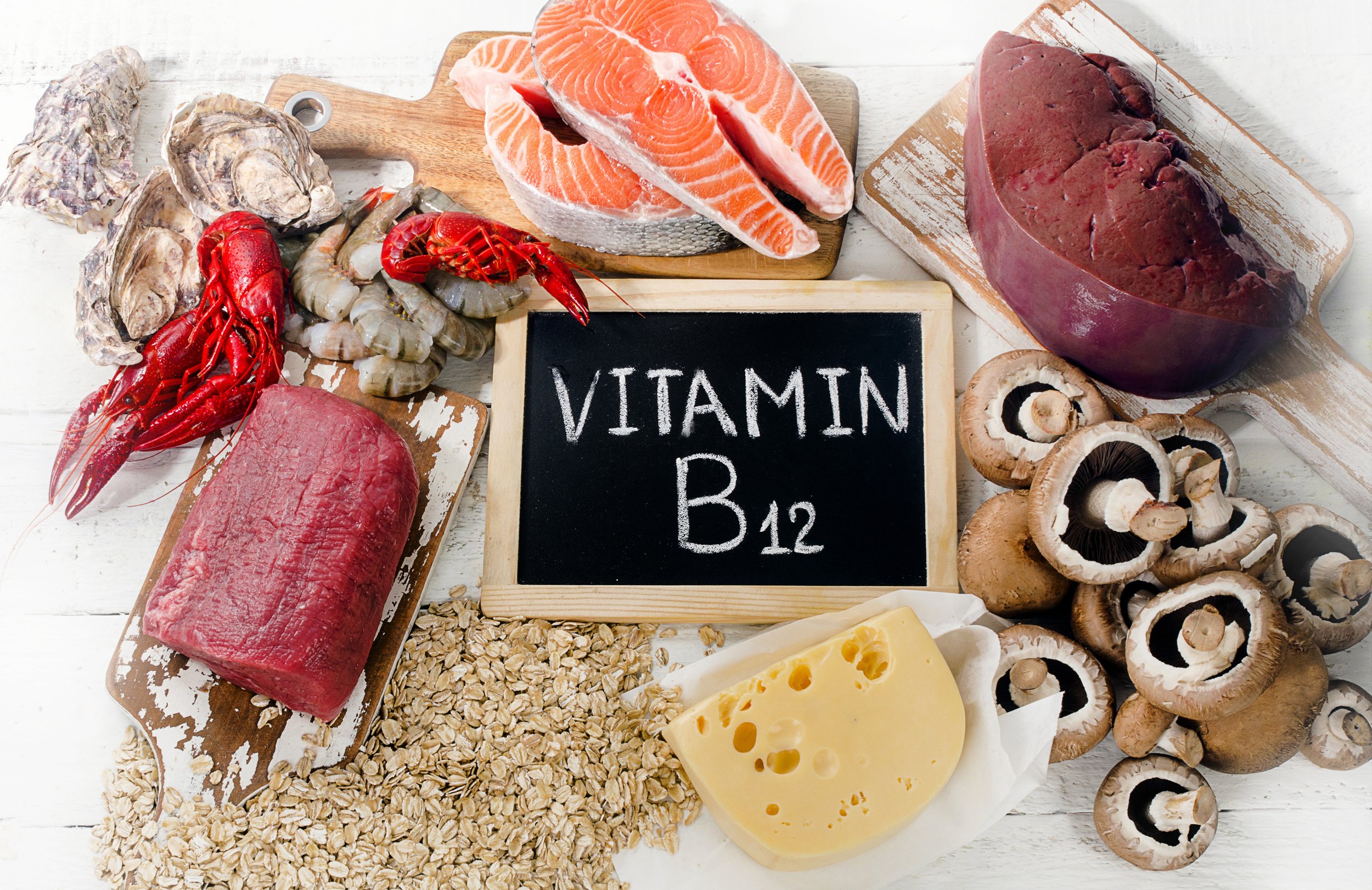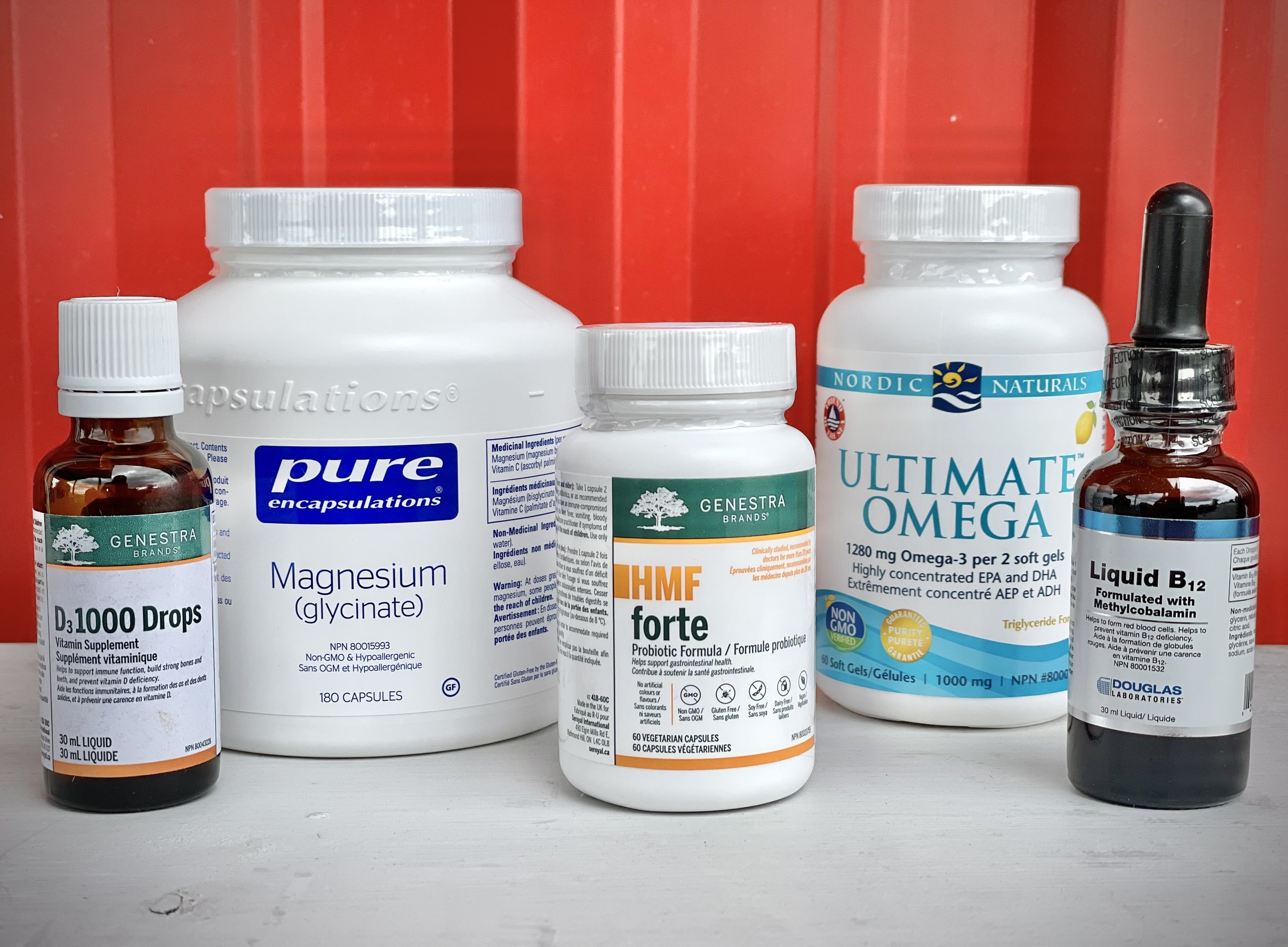Key Nutrients that Fight Chronic Pain
In my clinic, I see many people who are dealing with some level of chronic pain. Whether it is low back pain, joint pain, sciatica, neck tension, headaches, or some other chronic pain issue, my job is to get to the root of the problem and solve it.
I like to think I am good at my job, but my results speak louder than words. On average, I close 10-15 chronic pain cases per month. These are people that came in with issues that they have been dealing with for 6 months, 2 years, or even 10 years. Most of my clients have seen every health care practitioner they could think of and no one has been able to help them.
The reason my success rate is so high is because I look further than the obvious. What is this person’s lifestyle like? What are they eating? What type of exercise are they doing? What type of stressors are in their life? How did this pain start, and how has it progressed over time? What types of injuries or surgeries have you had in your past? How has everything and anything contributed to this chronic pain issue?
I am not a practitioner that will just follow the textbook and give you a blanket treatment plan. I customize my assessments from person-to-person because, from my experience, everyone has a different body and different life circumstances that brought them to where they are now.
Although my thorough testing helps me decipher the cause of the chronic pain, and sometimes the issue can be fixed with manual therapy, other times the issue has a deeper source.
One of those things are deficiencies. There are a few key vitamins, minerals, and other nutrients that are highly correlated to chronic pain, and I want to share these with you today.
You might think that you are the exception because you eat “good enough” and don’t think you need any vitamin supplements. However, Health Canada did a study back in 2012 finding that many Canadians are not getting enough nutrients from our diets alone, with the highest rates of deficiency being with vitamin D, vitamin A, magnesium, and calcium - all very important nutrients for a healthy pain-free lifestyle!
Now, before I start I must say a quick medical disclaimer. This blog post is meant for educational purposes only and is in no means for the purposes of medical diagnosis, treatment or prescribing of medicine for any disease, or any licensed or controlled act, which may constitute the practice of medicine. Please discuss with your health care provider before starting any new supplement regime.
Also, before reaching for the first supplement on your grocery stores shelf, make sure you are getting quality supplements from a reputable store. Over-the-counter supplements are not regulated as highly as pharmaceuticals, and there are many products on the market that simply do not work (or even could even be doing harm). If you want to get the most bang for your buck, please talk to a nutrition specialist before purchasing your vitamins. All of our practitioners at Core Potentials are registered practitioners and would be happy to guide you in the right direction. If you want to chat with our nutritionist about your supplement quality, click here.
Key Nutrients that Fight Chronic Pain
Vitamin D
There are countless studies that correlate musculoskeletal pain with Vitamin D deficiency, and unfortunately low vitamin D is a huge issue in Canada. Health Canada noted that there is an inadequate dietary intake of vitamin D in more than 90% of the population, and Statistics Canada showed that about 1/3rd of the Canadian population had blood concentrations below what is sufficient for healthy bones.
What does this mean? Well, we get most of our vitamin D from the sun. If you haven’t looked outside in a while, there is not a lot of sun in Canada. Even when it is sunny, it is too cold to go outside and absorb that beautiful vitamin D through our skin because of our bulky clothes. So, we have a choice. We either go outside in the cold with our skin exposed to absorb some sun (which is not advised for other health reasons), or we try to increase our dietary sources of vitamin D (which is hard to do according to Health Canada), or we take a vitamin supplement.
If you want to know how much to take, here is a general guideline. Healthy men utilize 3,000 – 5,000 IUs a day, so a physiological dose of at least 4000 IUs is considered safe and effective. Anything less than that has been shown to not raise vitamin D to adequate blood serum levels.
Many vitamin D supplements do not have enough in them to be considered a physiological dose, so make sure to check with your healthcare practitioner (or make an appointment with Krista) to make sure you are taking a quality supplement that will give you what you need.
Vitamin B12
Deficiency in Vitamin B12 is another big contributor to chronic pain, and unfortunately it is another vitamin that has high levels of deficiency. B12 deficiency becomes a more prevalent problem if you are vegan or vegetarian since B12 is found in our animal products like fish, meat, poultry, eggs, and dairy. People who are anemic are also highly likely to have B12 deficiency, so if you are someone who is prone to anemia and experiencing pain (especially nerve pain like sciatica) it is VITAL that you get your B12 levels checked. However, even if you are a meat eater, some people have troubles converting the B12 we get from our food sources into a form that our body can use. To avoid this issue, try a methylated B12 supplement for optimal bioavailability. You can get this at Core Potentials.
Another fact to be aware of is that B12 deficiency shows up differently for people. Dr. Vasquez explains one third of patients deficient in vitamin B12 will experience anemia (low iron), one third will experience peripheral neuropathy (chronic pain), and the other third will experience problems such as depression, psychosis, and/or other issues in mood/memory/personality (mental health issues). If this sounds like you, talk to your health care practitioner about possible testing and supplement options.
Magnesium
Magnesium deficiency is also highly correlated to pain. Specifically, magnesium works to release muscle and nerve tension. So, if you are someone who always finds themselves with stiff/sore muscles, magnesium deficiency is something you might be dealing with.
Stiff and sore muscles aren’t the only thing that magnesium can help with. Magnesium supplementation has been shown to improve a variety of pain issues including diabetic and post-chemotherapy neuropathy, dysmenorrhea (frequent menstrual cramps and pain during your period), headaches, and even acute migraine attacks!
As I mentioned above, Health Canada has reported that magnesium is one of the top 4 nutrients that is inadequate in our diets. They noted that between 40-50% of the population is not meeting their minimal requirement to maintain healthy levels of magnesium. That means almost 1 in 2 people are not getting enough magnesium from their food sources!
So, if you are dealing with any of these chronic pain symptoms, like muscle tension, neuropathy, dysmenorrhea, or headaches, mention to your healthcare provider if taking a magnesium supplement is right for you.
Omega-3 fatty acids
There has been a lot of hype around Omega-3 fatty acids in the last few years, and the hype comes from an honest place. Omega-3s have been shown in multiple studies as an attractive supplement for lowering chronic pain. This is because of its anti-inflammatory properties, and has been seen to help with many chronic pain conditions including rheumatoid arthritis, inflammatory bowel disease (IBS), and dysmenorrhea. This is why your doctor says it is important to eat fatty fish like salmon twice a week. This is because fish oil is the best way to get your omega-3’s in your diet. Some nuts and seeds like flaxseed and chia have also been seen to have higher levels of omega-3s. This super-powered nutrient is a saviour for chronic inflammation, so eat up your fatty fish or start a quality omega-3 supplement.
Probiotics
Probiotics have also had a lot of attention in the last decade or so. This is because of the effect your gut biome has on your overall health. What is a “gut biome”? In the most simplest terms, it is the balance of good and bad bacteria in our gut. You might be surprised to find out that our bodies have more bacterial cells than human cells - (crazy!) - and bacteria is surprisingly important for our overall health. These little microbes work together to help us live a healthy and normal life, and are important for some of the most basic bodily functions.
If your gut becomes unbalanced (or in simpler terms, the number of bad bacteria outweigh the number of good bacteria), this can come with a host of problems. One of these problems is, you guessed it, chronic pain! In fact, microbiome health is connected to a host of chronic pain disorders including visceral pain, chron’s/celiac disease, IBS, and even joint inflammation.
So, I have just mentioned the 5 big deficiencies that are highly connected to chronic pain. However, it is important to mention that your chronic pain symptoms can be coming from another source like mis-alignment in the pelvis and spine, or some other underlying condition that requires medical attention. If you want to learn more, feel free to book an appointment with me or one of our experienced practitioners at Core Potentials and we will be happy help.
With love,
Britte Nielsen, DOMP, RHN
Osteopathic Practitioner, Registered Holistic Nutritionist






